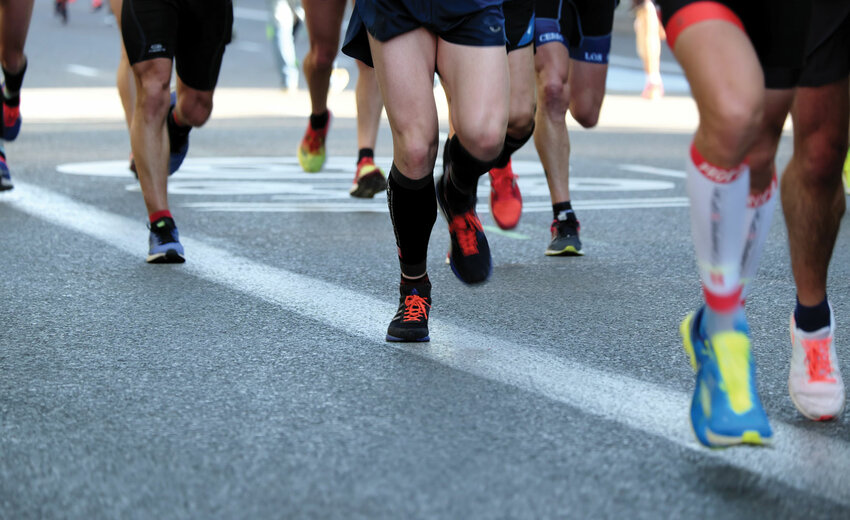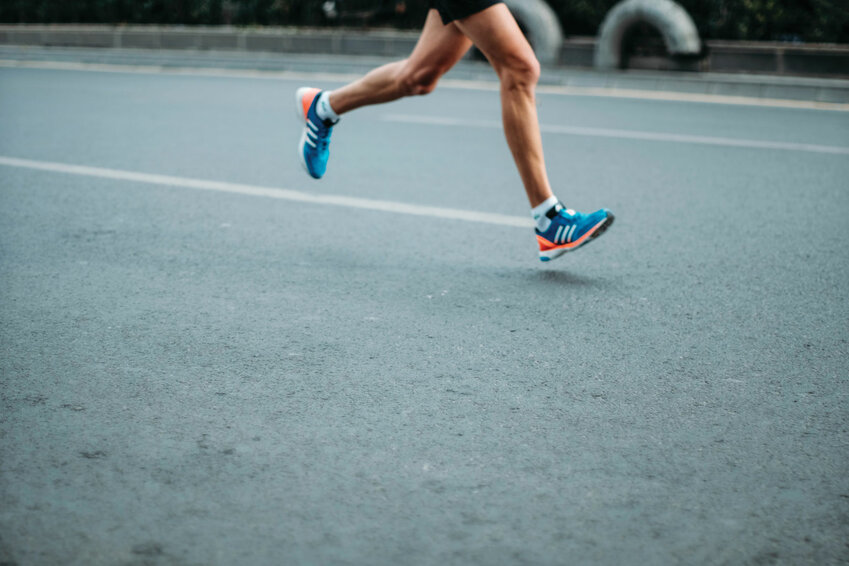
Q: What foods should I avoid when preparing for a marathon?
A: I should start with saying that a big takeaway when it comes to nutrition and training, is that everyone’s metabolic needs and race goals are different.
I am constantly working with patients on changing our narrative around food restriction and thinking about how we can add more nourishing foods vs. taking foods away. The only solid recommendation I have is to avoid adding a totally new food within the week prior to race day. Leading up to this week, make sure you’ve been eating the foods you plan to consume day-of, so your body is used to them. You might also want to consider eliminating alcohol one to a few weeks prior to the race as alcohol is an inflammatory and can further deplete crucial minerals and electrolytes.
Q: What is “carb-loading” and when should I do it?
A: Carbohydrates are our primary source of fuel burned during prolonged exercise, so eating carb-rich foods before race day can help maximize your glycogen – the source of stored energy in the liver. Inadequate glycogen stores on race day can lead to unnecessary fatigue and decreased endurance. Carb-loading involves consuming a higher amount of carbs than normal two to three days leading up to the race. A general rule of thumb is to aim for at least three grams of carbohydrates per one pound bodyweight with a max of five, depending on individual and training needs.
Q: On the morning of a big race when and what should I eat and drink?
A: I recommend a carb- and protein-rich breakfast two to three hours prior to start time. Try to eat at least 50 grams of carbs in this meal. An example would be two pieces of toast with nut butter and one banana. Then eat a carb-rich snack 15 to 30 minutes before racing, such as a pureed fruit pouch.
In terms of fluid, try to consume 16 to 20 ounces with electrolytes before a race. It’s important to emphasize here that you should start your race properly hydrated and not even slightly dehydrated. Hydration and electrolytes during training becomes just as important as your fuel plan. Only consider drinking coffee if you’re used to it, and don’t go overboard, as it can cause GI upset and is also a diuretic.
Q: What should I eat during a run?
A: There is significant evidence for the benefits of consuming carbs and limiting fat and fiber during intense exercise, especially if exercising more than two hours and starting carb intake within the first hour. Consider consuming around 30 to 60 grams of carbs per hour. Eating carbs during exercise also helps drive water into the cells.
As mentioned before, you should be eating foods you have been eating during training. Some examples: dried fruit (apricots, plums, bananas, strawberries) fig bars, peanut butter and jelly, sweet potatoes, waffles and gels, which are typically made from a blend of sugars without any fat, fiber or protein. They are designed to replenish carb stores and glycogen that are depleted when running. With gels especially, you should use them in training and consume them in intervals like your plan for race day to make sure you can tolerate them. An alternative to gels could be sports drinks with easily digestible sugars.

Q: How much water should I drink during a race?
A: Losing up to two percent body weight through sweat/dehydration when exercising is enough to reduce performance so hydration during exercise becomes really important. You should consider also consuming electrolytes such as sodium, potassium, magnesium and chloride, as these are used inside and outside the cell so we can essentially use our muscles. A rough recommendation during races is around 16 ounces of water and/or electrolytes and at least 300 milligrams per hour, depending on how much you sweat.
There is also an equation called the Galpin equation that is tailored more for the individual where you essentially take body weight in pounds and divide it by 30. The number you get is what you consume in ounces every 15 to 20 minutes.
Q: Is there such a thing as drinking too much water?
A: Yes, and this can lead to hyponatremia (low sodium), which – if it gets too low – can be fatal. This is not to scare runners away from drinking water, but you should aim for a safe middle-ground in your strategies, as discussed above.
Q: What should I eat and drink after the race to help me recover?
A: Try to prioritize balanced snacks and meals with protein and complex carbs because they both support proper recovery by repairing muscle and replenishing glycogen stores. Consuming food within 30 to 60 minutes post-exercise is optimal.
Generally, we lose one to five pounds of sweat per hour while exercising, depending on weather conditions. A general rule of thumb for fluids post-race is drinking 125 percent of the fluids you lost during physical activity. Chocolate milk can be a great, quick grab-and-go snack post-exercise.
If you’re someone with a sensitive stomach, it’s recommended limiting foods that could cause you GI upset. Some common culprits include high fructose/hypertonic food/drink, fat, fiber, sugar alcohols and cruciferous vegetables (broccoli, cauliflower, cabbage).
Q: Why do some runners throw up right after a race, and is there a way to prevent it?
A: This can happen for several reasons, including not prioritizing the digestive system during training and not being accustomed to eating during intense exercise. Another factor may be the ingestion of too many energy gels with not enough water, imbalanced hydration or too much acidic food. Sometimes intra-abdominal pressure from high intensity running can create a squeezing mechanism on the stomach, causing the runner to throw up.
Victoria, a casual runner herself, earned her master’s degree in nutrition and dietetics from Bastyr University in Seattle, then completed a distance internship through the University of Texas—Houston with rotations in the University of Washington system. She has a special interest in sports medicine and gut health. X